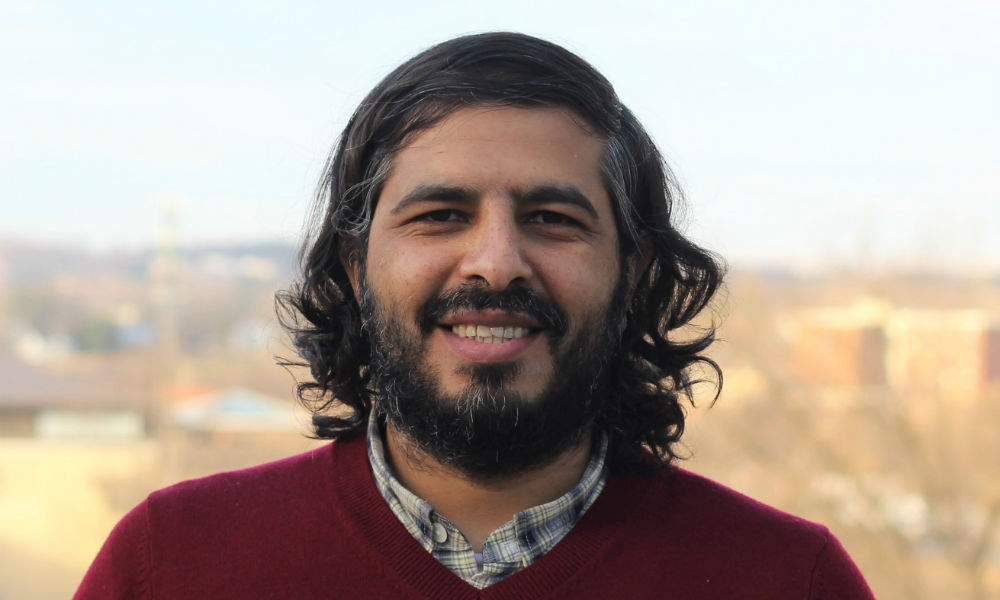ISAT professor specializes in cryptography
ISAT
SUMMARY: Professor Ahmad Salman joined JMU's Integrated Science and Technology Department in the fall of 2017. His background in cryptography brings a unique perspective to an already diverse group of faculty.
By Caleb Ayers
When Ahmad Salman was four years old, his older brother received a Sinclair ZX81, a small, inexpensive computer that hooked up to a television. The computer’s games and capabilities immediately captivated young Salman, who, over the next several years, learned BASIC, experimented with other models and realized his desire to work vocationally with computers.
Salman discovered his love for teaching in high school when he began tutoring friends. Through this experience, he began exploring his natural ability and strong desire to teach others.
After high school, he studied Computer Engineering at the Arab Academy for Science and Technology in Alexandria, Egypt. He continued his studies at George Mason University (GMU), where he earned his Master’s and Ph.D. in Computer Engineering. While at GMU, he taught classes in cryptographic functions, and, more specifically, public key cryptography, a method that uses public keys to establish a secure connection and secret keys to encrypt information.
Salman, who joined the Integrated Science and Technology Department in the fall of 2017, is excited to be in a teaching position. His background in cryptography brings a unique perspective to an already diverse group of faculty, but he shares a common trait with them – a love of real-world projects. “I think it’s the fastest way to learn things, and the best way to make it stick,” he said.
Salman enjoys seeing the aha moment in his students’ eyes as they grasp a concept, but he also appreciates his own aha moments while teaching. “No matter how many times you teach something, you will always find something new,” he said.
In addition to teaching several ISAT classes, Salman is working with students to develop a drone that, while flying over a stream, can establish secure connections with the sensor nodes under the water and extract information about the stream. He is also working across disciplines with biology professors to build a device that combines a motion-triggered scale with a flash and camera to weigh shrews (the smallest mammals in North America) in the wild.
Outside of teaching, Salman enjoys soccer, rock climbing and racquetball.
